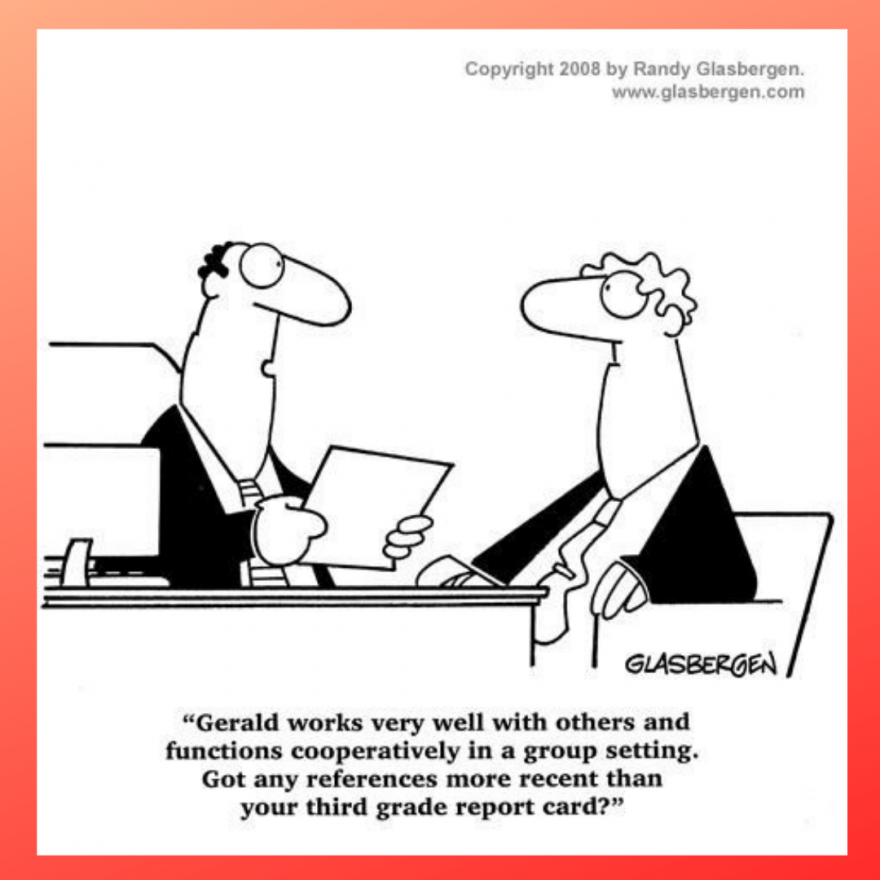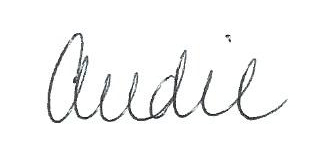References: Getting Your Ducks in a Row
Apr 06, 2021Before anything else, preparation is the key to success”
— Alexander Graham Bell
Hi Audie,
Welcome to April and the beginning of Q2. It seems like this year is flying by already!
 In today’s competitive job market, standing out (in a good way!) from other candidates is critical to getting noticed and to moving forward in the interview process and ultimately landing an offer. One of the common themes woven throughout my coaching programs is the concept of ‘preparation’ (in case you’re wondering, the other is being strategic).
In today’s competitive job market, standing out (in a good way!) from other candidates is critical to getting noticed and to moving forward in the interview process and ultimately landing an offer. One of the common themes woven throughout my coaching programs is the concept of ‘preparation’ (in case you’re wondering, the other is being strategic).
From the time you decide to actively seek employment elsewhere, preparation plays a key part to your success as it’s sprinkled throughout networking, interviewing, negotiating offers, and in other areas.
Many of my clients ask me about references — when’s the right time to provide them, who to choose, etc. — so I thought it would be helpful to share some insights and best practices on this subject and how preparation plays a key part.
As always, I’d love to hear from you! Let me know how this month’s newsletter resonates with you, and what burning questions or topics you’d like me to address in a future newsletter.
Happy Spring!
Warm regards,

P.S. I invite you to share my newsletter with anyone you feel could benefit from receiving valuable content and insights specific to mid- to senior-level executive job seekers/career changers.
P.P.S. To learn more about Your Call To Action, LLC and how I help my clients go from being frustrated and struggling with their search, stuck in a toxic work environment or worried about being downsized to feeling excited, valued and re-energized at work (and in their life) again, take a look around my website.
![]()
References: Getting Your Ducks in a Row

“It is better to look ahead and prepare, than look back and regret.”
— Jacqueline Joyner-Kersee
The topic of references will inevitably come up during the interview process, and how you respond depends upon when you’re asked for them.
Let’s step back a moment and talk about the best type of references to have. Most of the time when hiring companies ask for references, you usually provide the name and contact information of former bosses; however, that’s not always the best strategy.
If you’re still employed and your employer has no idea you’re looking or open to opportunities elsewhere, you would use previous managers (outside of your current company) and close confidants you’ve worked with in recent years.
Former managers are important, but you want to be strategic about your references. What's the scope of responsibilities of the position you’re interviewing for, what qualities is the company looking for in the person they hire AND who among your references would be in the best position to talk up these qualities on your behalf? Whenever possible, use references who are at or above the level of position you are seeking (unless a company specifically asks for individual(s) who have reported to you).
Also, try to use references from the past 5-7 years; only providing references from years before that could raise a red flag – the hiring company may wonder why you don't have any references from the past several years.
Keeping a general list of references
Staying in touch with former managers and former business colleagues is always a good practice, but in reality it’s often hard to do. I encourage you to touch base at least annually -- holiday time is an easy way to stay in touch as you can send a holiday card or call to catch up.
By keeping in touch with your references, especially talking with them, you’ll learn of new addresses, phone numbers, and their whereabouts. It’s important to keep an updated list of references as it makes it easy to find them when you need them!
Tip: if you haven’t updated your reference list in years, take the time now to connect with your former bosses and colleagues and update your list. See the Awesome Resources section below for a template.
When is the best time to present a list of references?
The absolute best time to present references is when the hiring company asks you for references AND it’s after you’ve gone through a series of interviews with them and are close to getting an offer. BUT, before you automatically provide them with the list of references, there are some critical steps you need to first take.
If you are asked to provide references by HR during the initial screening interview, that’s way too soon! You haven’t had a chance to interview with the hiring manager or hiring committee to get a real handle on the scope of responsibilities of the position or key criteria they’re looking for in their candidate. More often than not, you may decide to use a different set of references after having gone through the interview process than what you may have shared upfront.
So, how do you respond when asked upfront for references? In a very conversational and friendly tone, simply reply “I’m happy to provide references at the appropriate time in the interview process.”
Critical steps to take when asked to provide references
When asked to provide references, let them know you’d be happy to provide references. and say something like: “I’m happy to provide references. I’d like to first check with each person to make sure they'll be available to take your call in the next week or so.”
Once they ask for references, be strategic about the individuals you select. Once you’ve identified who, do the following:
- Reach out to them via email, text, LinkedIn Message or phone (depends upon how well you know them) – mention you are close to getting an offer and would like to use them as a reference. Ask what their availability is for a QUICK call in the next day or so.
- Call them at the designated time. After the initial niceties, mention again you are close to an offer and wanted to make sure they are willing to be a reference for you. Assuming yes, mention the name of the company and the position you’re interviewing for, and ask them “in addition to whatever you’d like to say about me, could you please stress these qualities: X, Y and Z. [these are qualities the company is looking for in the candidate they hire]."
- As you’re wrapping up the conversation, thank them for being a reference and ask if they’d let you know when the hiring company contacts them. Don’t forget to ask how you can return the favor/reciprocate/be of help.
- After you hang up, send them a quick email thanking them for being a reference and briefly recap the company, the position, and the X, Y and Z things to stress. Remind them to follow up with you once they’ve talked with the hiring company.
- Step 4 is CRITICAL – they may be multi-tasking while talking with you or scribbled notes on a paper they later can’t find. By sending a follow-up email, it’s readily available when the call comes in and increases the chances they are well-prepared to provide a positive and compelling reference for you.
- Send an email with your list of references to the individual at the hiring company who requested it within 24-48 hours of their request.
Unless they indicate otherwise, provide no more than 3 references and include the reference’s name, title, and company where you worked together, email, phone, and their relation to you (i.e. your boss, colleague, direct report, business partner, client, etc.)
![]()
Here’s a References Template you can use when providing references to the hiring company.

If you are a mid- to senior-level executive and motivated to find your next opportunity (or know someone who is), I'd love to speak with you to better understand your situation, what you're looking to do, and see how I can be of help.
Book your complimentary 40-minute Strategy Session here.
![]()

Prior to launching Your Call To Action, LLC in 2015, Audie spent over 30 years in technology sales and sales leadership roles working with C-Level and other key stakeholders at Fortune 1000 companies utilizing a consultative and value-based approach to addressing her clients' needs.
Due to the evolving nature of the technology industry, it was common to change companies due to M&A, new leadership coming in and bringing their own team, corporate restructurings, or as a way to advance one's career. Audie became very proficient — and successful — in landing multiple offers each time, and was frequently complimented on how she stood out (in a good way!) from other candidates throughout the interview process.
She leverages her business acumen, consultative and value-based approach to sales, and professional coach training (ICF Certified) in working with clients and delivering her proven methodology, strategies and tips for successfully landing a new position (after all, one needs to sell oneself, right?).
Audie is intuitive, nurturing, and compassionate yet firm—all of the qualities you should want in a coach. She is your accountability partner with a focus on helping you get real results ... and you’ll also have fun along the way!
Want to learn more? Click here to book a Complimentary Strategy Session.

